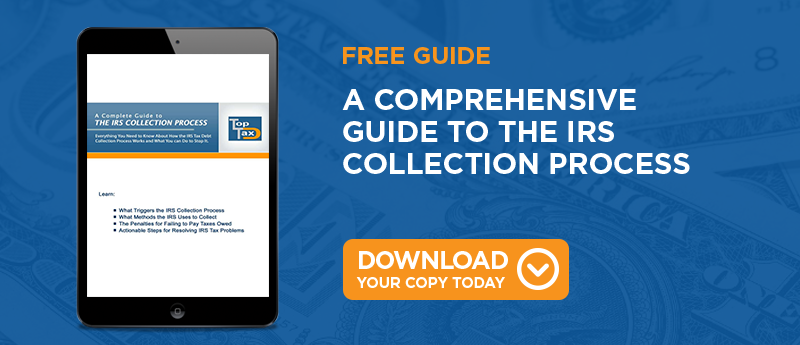
When you owe a debt to the IRS, you have every obligation to resolve it by any means possible. If you fail to pay your outstanding balance, the IRS will notify you of its intent to levy.
Before you receive this notice, however, you would do well to understand what this action could lead to and how it can impact your life. You also should learn what you can do to prevent the IRS from levying your money and your assets.
Written Notice
The IRS by federal law must notify you in writing of its intent to levy. This communication will not be sent to you by email or by phone.
You will instead receive a letter, more than likely by certified mail, clearly stating the IRS' intentions to collect on the debt. The letter will tell you how much you owe and the last day that you can pay the debt in entirety before the levy goes into effect.
Intent to Levy Forms
Depending on how much you owe, the IRS can send you one of three different levy forms. These forms are:
- IRS Form 668-A: This form notifies you of a one-time levy that will be placed against your bank account. You have up to 21 days to negotiate with the IRS to convince it to release the levy. If you are not successful, the IRS will seize your money in the account and use it to settle your account.
- IRS Form 668-W: This form notifies you of the IRS' intent to garnish your income. The amount that will be deducted from your paycheck will depend on the number of dependents you claim. The levy will be released once the debt is satisfied in entirety.
- IRS Form 668-B: This form notifies you of the IRS' intentions to seize your property, sell off your assets, and use the cash to pay your debt.
If you owe a debt totaling more than $10,000, you may receive an intent to levy against your property. Smaller debts are typically settled with wage garnishments and bank account levies.
Viable Assets
When it comes to seizing your assets, the IRS will avail itself to a wide array of your possessions. Some of the items it can legally lay claim to include:
- Cash on hand
- Bank accounts
- Stocks and bonds
- Social Security
- Your home
- Cars, boats, and other vehicles
- Real estate
- Artwork, jewelry, antiques, and other valuables
Once it lays claims to your possessions, the IRS will sell them off and use the cash to settle your debt. You will be unable to reclaim them because you forfeited your right to them with your tax debt.
Avoiding Tax Levies
Before it reaches the point where you stand to lose your possessions and money, you can take several steps to settle your account and appease the IRS. If you are unable to make any payment at all because of your low income, you may be eligible for a status called Current Not Collectible, or CNC.
CNC status means that you do not earn enough money to make payments without experiencing undue financial hardship. It puts your account on indefinite hold until your income level rises. Once you begin earning more money, the IRS will continue its collection efforts against you.
You also could make an Offer-in-Compromise, or essentially offer to settle your account for a lesser amount. This option also can be a solution if you lack a high enough income to make payments, yet still want to make a good faith effort to pay what you owe.
You likewise can pay what you owe through a payment arrangement. A payment arrangement with the IRS allows you to make monthly payments that are affordable for your budget. The payments should fit within your budget and be made on time to avoid further collection efforts.
Finally, you may be able to avoid levies if you file for bankruptcy. Bankruptcy will not wipe away your IRS debt. However, it could remove the penalties and halt any levy actions begun by the IRS.
The IRS has a duty to collect what you owe to the government. You can act in your own best interests by understanding what an intent to levy entails and what you can do to avoid this action.




